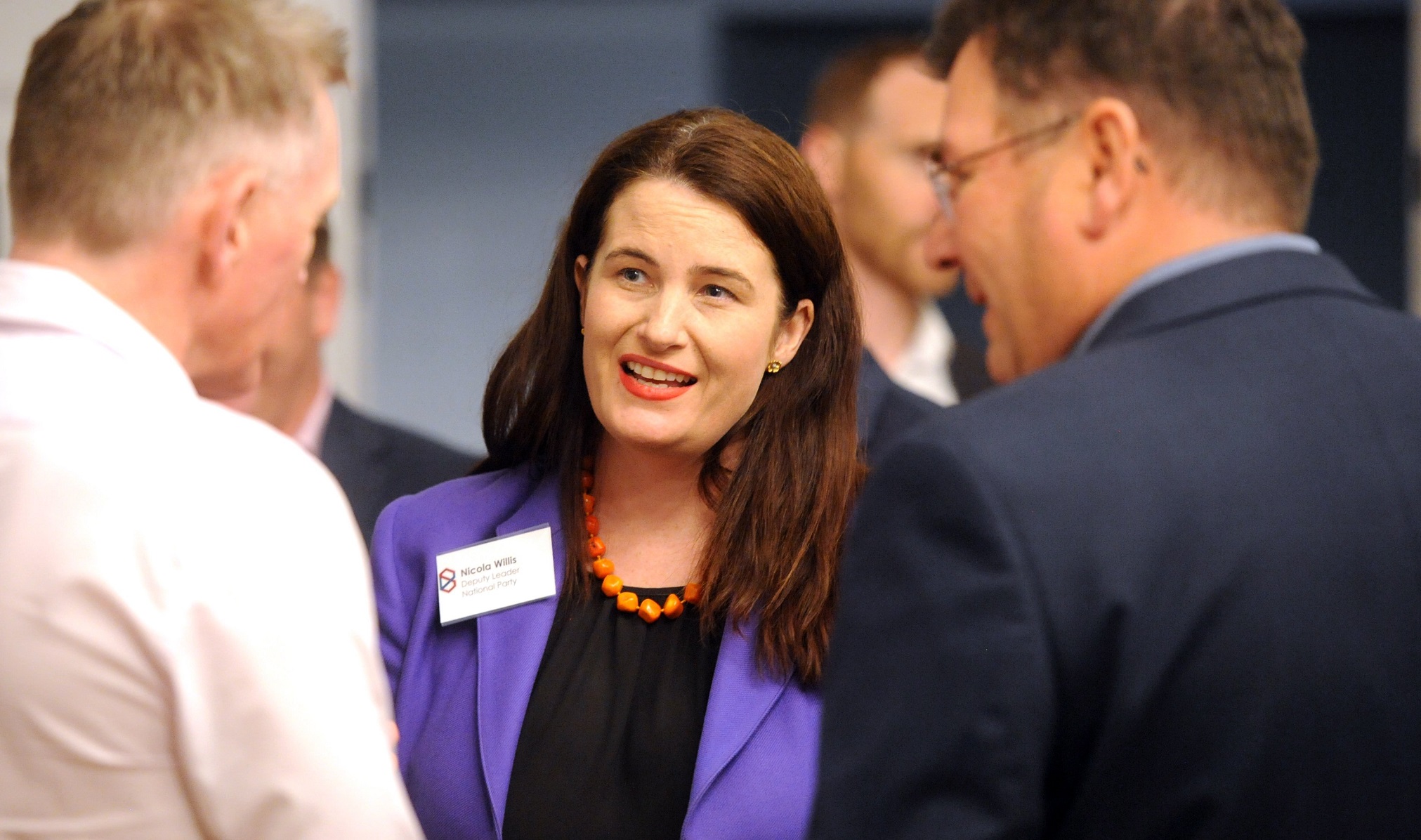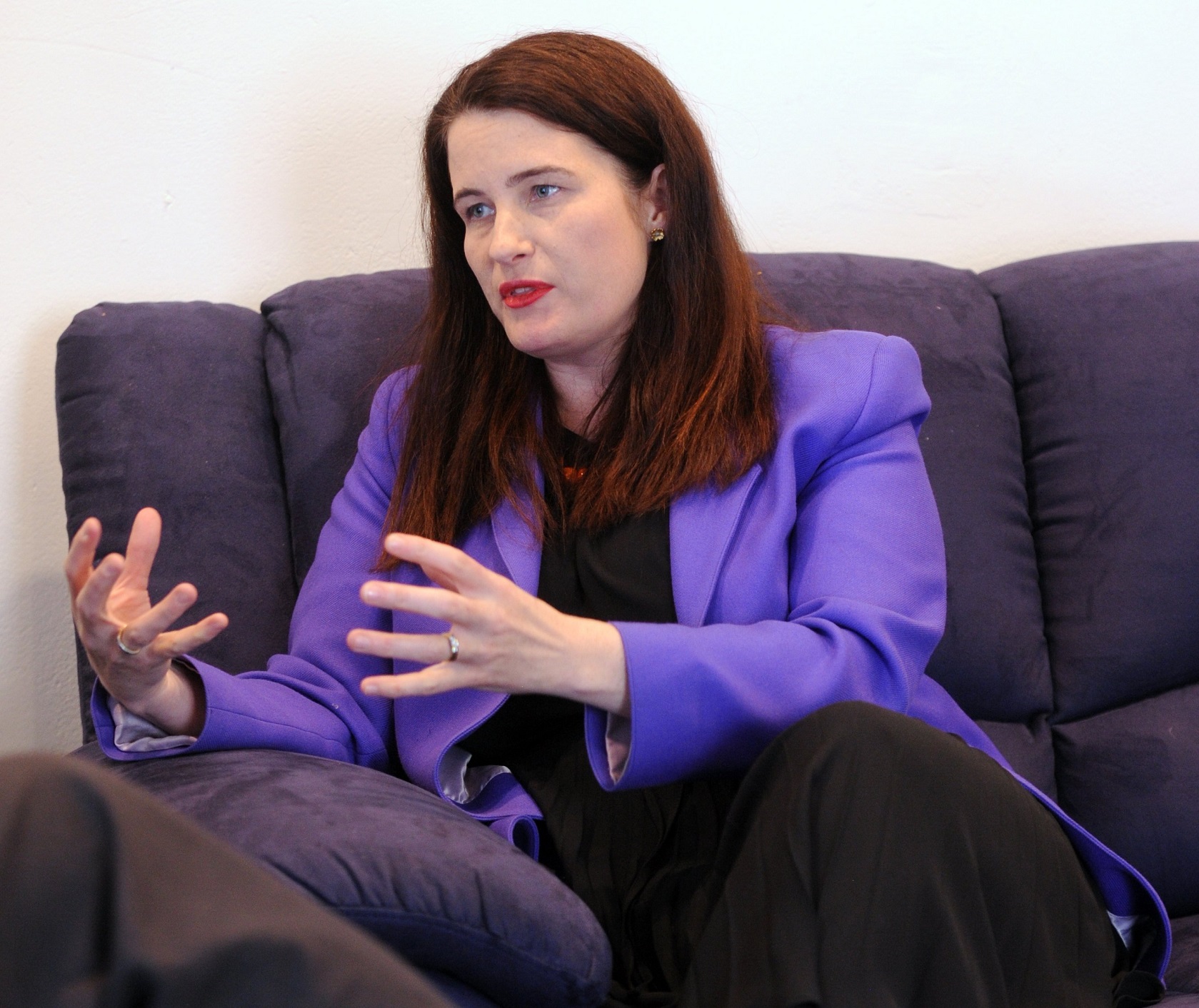
Most people are well aware that the cost of living is high at the moment.
If they were not, the insistent demands of National finance spokeswoman Nicola Willis and her colleagues for most of this year that there is a "cost of living crisis" would be enough to make you at least contemplate the question.
Ms Willis entered Parliament four and a-half years ago when former finance minister Steven Joyce resigned, coming in next off the list.
Her maiden speech was much more economics-focused than many such statements, telling the House that a strong economy was the foundation on which equality of opportunity was built.
Fast forward to last Friday, sitting on list MP Michael Woodhouse’s office couch prior to speaking at a Business South lunch, and Ms Willis’ prescription has not markedly altered, despite the economic storms battering the global and local economies.
"Economic growth can deliver for everyone when we have an economy which is growing and that can create and sustain well-paying jobs, that then generates the revenue that the Government needs to invest in better, stronger services, and we all win from that.
"I believe that a rising tide can lift all boats, and that’s why increasing the prosperity of our employers and our businesses is important, because when they are doing well it is easier for all New Zealanders to get better wages, to get better jobs, and to have better living standards," she said.
At just 41, Ms Willis has made a meteoric rise to the leadership team of her party.
A former adviser to Bill English and then to Sir John Key, Ms Willis left Parliament to cut her teeth in the corporate world with Fonterra, before returning to the Beehive and embarking on a political career from the other side of the desk.
While the travails of National’s leadership turmoil led to her rise and fall and now rise again, Ms Willis is now undoubtedly one of her party’s main assets.
Her determination in the House meant she had so far proved impervious to the barbed comments from Finance Minister Grant Robertson, and her personability meant she was a relaxed and natural mingler with the Business South audience, a group which admittedly is very much her natural constituency.
Mr Robertson’s latest salvo is that with its plans to cut spending and taxes, a National-led government would follow the path of the United Kingdom during the brief and ruinous administration of Liz Truss and tank the economy.
It was a proposition that Ms Willis firmly rejected.
"I think the government of the United Kingdom made some bad decisions," she said bluntly.
"Their energy crisis was clearly driving extremely high levels of inflation and I am pleased for New Zealand that we don’t have that dilemma.

"It is very important that New Zealand takes an economically orthodox approach.
"National’s commitment is to keep being sensible, careful economic managers, and that is why we have consistently said that our tax reductions would be funded by more disciplined spending, stopping poorly prioritised projects, driving out the bureaucracy and driving out the waste."
One of Ms Willis’ strengths is that rather than simply claiming everything Labour is doing is bad, is that she has her own economic philosophy and is not shy about advancing it.
In October she gave a major speech at Victoria University on social investment, a pet policy of Mr English which she was keen to see restored to the centre of National’s economic approach.
"We are determined to get better results for our people and in particular for vulnerable members of our community.
"We share the frustration of many New Zealanders who have seen successive governments talk about increasing the independence of people and increasing their self-determination but failing to do that.
"We have ongoing cycles of disadvantage, so we are thinking deeply about how can we change the way government operates, to actually invest in operations that generate better results."
The approach is not uncontroversial: there is an open debate about what a "successful" investment actually is, and questions about whether the tools used to measure that accurately reflect what some service and programme providers are actually doing.
Then there is the debate about whether it amounts to a new approach or not: when Mr English first espoused social investment as a philosophy, Sir Michael Cullen tartly countered that it was just spending under another name.
"I think both sides of politics agree that investing in people is critical, the question is how do you derive value and outcomes from that investment," Ms Willis said.
"Our argument is that it’s not enough to just spend more, you need to look at the kind of investment you are making compared to the results you are seeing, because we think the connection between those two things has got looser and looser over time.
"We need to see accountability. We spend lots of money, people have these big aspirations, whether its in housing with KiwiBuild or if its in education to equip kids with skills and we see that things are going backwards, so where’s the accountability for that?
"We want to tighten that connection so that people can see that when we are spending that, we are tying it to targets, we are tying it to results, and that things are getting better over time.
"Yes, there are some things that don’t work first time, but when that happens we need to identify why and do better next time."












